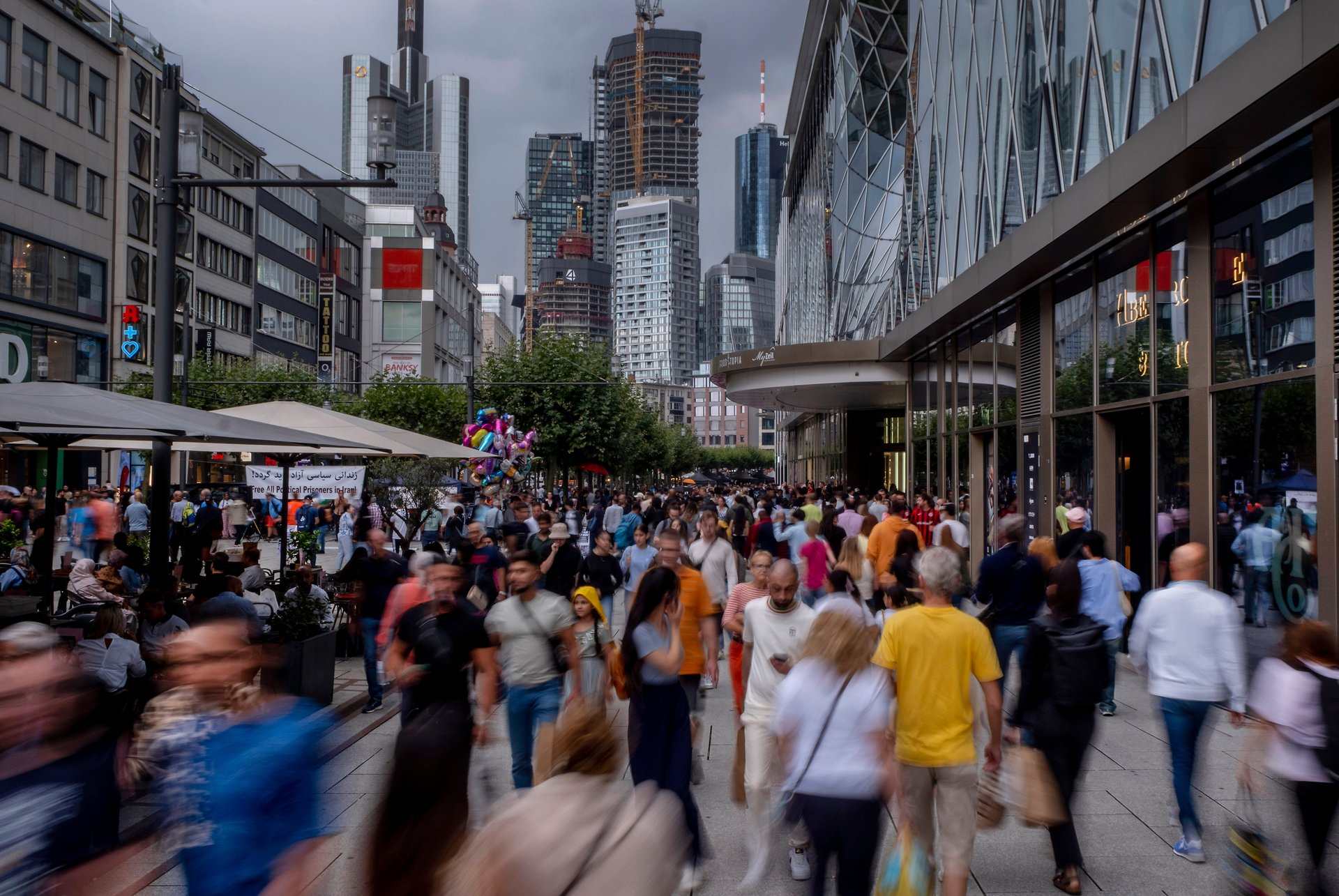Europe's inflation is up after months of decline. Could it delay interest rate cuts?
Inflation is on the rebound in Europe

FRANKFURT, Germany (AP) — Inflation plaguing Europe rose to 2.9% in December, rebounding after seven straight monthly declines as food prices rose and support for high energy bills ended in some countries. The rise in price levels fueled debate over how soon interest rate cuts could be expected from the European Central Bank.
Suggested Reading
The figure released Friday was up from the 2.4% annual inflation recorded in November — but is well down from the peak of 10.6% in October 2022.
Related Content
ECB President Christine Lagarde warned that inflation could tick up in coming months, taking a detour from its recent downward path. The central bank for the 20 European Union countries that use the euro currency has raised its benchmark interest rate to a record-high 4% and says it will keep it there as long as necessary to push inflation down to its goal of 2% considered best for the economy.
The faster-than-expected fall in inflation over the last months of 2023 had led some analysts to predict the central bank would start cutting interest rates as early as March.
The December rebound, however, was grist for analysts who predict that rates wouldn’t start to come down until June.
“The increase serves as a reminder that interest rate cuts in the first quarter are unlikely, but this shouldn't dispel expectations of cuts later in the year,” said Bert Colijn, senior eurozone economist at ING bank.
Views differed on the significance of the higher inflation number. December's increase was a “just a blip” that would be reversed in January, said Jack Allen-Reynolds, deputy chief eurozone economist at Capital Economics. He foresees a first rate cut in April.
Inflation in December got a boost from the end of energy subsidies in Germany and France that had lowered prices a year ago.
Core inflation, which excludes volatile fuel and food prices, eased to 3.4% from 3.6% in November, according to European Union statistics agency Eurostat. The figure is closely watched by the ECB.
Food prices have fallen from painful double digits in several months last year, but still increased by an annual 6.1% in December.
Higher food costs led global supermarket chain Carrefour to announce this week that it will stop selling PepsiCo products in it stores in France, Belgium, Spain and Italy. The French chain pointed to price increases for popular items like Lay’s potato chips, Quaker Oats, Lipton tea and Pepsi soda.
The ECB and central banks around the world have rapidly raised interest rates to fight inflation. They work by raising the cost of borrowing for consumer purchases, particularly of houses and apartments, and for business investment in new offices and factories.
That lowers demand for goods and relieves pressure on prices — but it also can limit growth at a time when it’s in short supply in Europe. The economy shrank 0.1% in the July-to-September quarter.
Inflation itself, however, has been a key challenge to economic growth because it robs consumers of purchasing power. The ECB said raising rates quickly was the best way to get it under control and avoid even more drastic measures later.
Officials at the U.S. Federal Reserve also stressed the importance of keep rates high until inflation is “clearly moving down,” according to minutes of their Dec. 12-13 meeting released Wednesday. The Fed has signaled three rate cuts this year.
U.S. consumer prices were up 3.1% in November from a year earlier.
Inflation spiked around the world as the rebound from the COVID-19 pandemic strained supplies of parts and raw materials, then as Russia invaded Ukraine in February 2022, raising costs for food and energy.
Europe has since found other supplies of natural gas outside Russia to generate electricity, power factories and heat homes, so energy prices have eased.
Europe — and the rest of the world — is facing a possibility of new delays and higher prices for consumer products as attacks by Yemen's Houthi rebels have scared away the world's largest container shipping companies and energy giant BP from sailing through the Red Sea and Suez Canal.